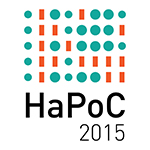Starting in 1939, Konrad Zuse delved deep into the study of formal logic in order to work out his “computation plan”, i.e. a complete notation system for writing a programming language. Although the Plankalkul (Plan and Kalkul) didn't exercise much impact on account of German post-World War hardships, it displays all the traits currently recognized as standard features of modern programming languages: universal, algorithmic, high-level and perfectly suited to the solution of extremely complex problems. The aim of the present study is to highlight the general purpose and technical specifics of this language, its historical and scientific background, and the philosophical inspiration leading Konrad Zuse to employ Hilbert's predicate logic in the formalization of the “computation projects” for his machines.
- Presentation
- Other

 PDF version
PDF version
